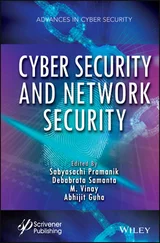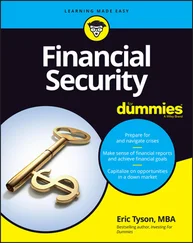With a commercial website, 100 passwords per second may translate to one compromised user account per second, because of poor user password choices. That may not be a big deal for a web service with 100 million accounts – but it may still be worth trying to identify the source of any industrial-scale password-guessing attacks. If they're from a small number of IP addresses, you can block them, but doing this properly is harder than it looks, as we noted in section 3.4.6above. And if an automated guessing attack does persist, then another way of dealing with it is the CAPTCHA, which I'll describe in section 3.5.
3.4.11 Using a password manager
Since the 1980s, companies have been selling single sign-on systems that remember your passwords for multiple applications, and when browsers came along in the mid-1990s and people started logging into dozens of websites, password managers became a mass-market product. Browser vendors noticed, and started providing much the same functionality for free.
Choosing random passwords and letting your browser remember them can be a pragmatic way of operating. The browser will only enter the password into a web page with the right URL (IE) or the same hostname and field name (Firefox). Browsers let you set a master password, which encrypts all the individual site passwords and which you only have to enter when your browser is updated. The main drawbacks of password managers in general are that you might forget the master password; and that all your passwords may be compromised at once, since malware writers can work out how to hack common products. This is a particular issue when using a browser, and another is that a master password is not always the default so many users don't set one. (The same holds for other security services you get as options with platforms, such as encrypting your phone or laptop.) An advantage of using the browser is that you may be able to sync passwords between the browser in your phone and that in your laptop.
Third-party password managers can offer more, such as choosing long random passwords for you, identifying passwords shared across more than one website, and providing more controllable ways for you to manage the backup and recovery of your password collection. (With a browser, this comes down to backing up your whole laptop or phone.) They can also help you track your accounts, so you can see whether you had a password on a system that's announced a breach. The downside is that many products are truly dreadful, with even some hardware password managers storing all your secrets in the clear [131], while the top five software products suffer from serious and systemic vulnerabilities, from autocomplete to ignoring subdomains [391]. How do you know that any given product is actually sound?
Many banks try to disable storage, whether by setting autocomplete="off"in their web pages or using other tricks that block password managers too. Banks think this improves security, but I'm not at all convinced. Stopping people using password managers or the browser's own storage will probably make most of them use weaker passwords. The banks may argue that killing autocomplete makes compromise following device theft harder, and may stop malware stealing the password from the database of your browser or password manager, but the phishing defence provided by that product is disabled – which may expose the average customer to greater risk [1357]. It's also inconvenient; one bank that suddenly disabled password storage had to back down the following day, because of the reaction from customers [1280]. People manage risk in all sorts of ways. I personally use different browsers for different purposes, and let them store low-value passwords; for important accounts, such as email and banking, I always enter passwords manually, and always navigate to them via bookmarks rather than by clicking on links. But most people are less careful. And be sure to think through backup and recovery, and exercise it to make sure it works. What happens when your laptop dies? When your phone dies? When someone persuades your phone company to link your phone number to their SIM? When you die – or when you fall ill and your partner needs to manage your stuff? Do they know where to find the master passwords? Writing them down in a book can make sense, if all you (and your executor) have to remember is ‘page 169, Great Expectations.’ Writing them down in a diary you tote with you, on a page saying ‘passwords’, is not so great. Very few people get all this right.
3.4.12 Will we ever get rid of passwords?
Passwords are annoying, so many people have discussed getting rid of them, and the move from laptops to phones gives us a chance. The proliferation of IoT devices that don't have keyboards will force us to do without them for some purposes. A handful of firms have tried to get rid of them completely. One example is the online bank Monzo, which operates exclusively via an app. They leave it up to the customer whether they protect their phone using a fingerprint, a pattern lock, a PIN or a password. However they still use email to prompt people to upgrade, and to authenticate people who buy a new phone, so account takeover involves either phone takeover, or guessing a password or a password recovery question. The most popular app that uses SMS to authenticate rather than a password may be WhatsApp. I expect that this will become more widespread; so we'll see more attacks based on phone takeover, from SIM swaps through Android malware, SS7 and RCS hacking, to simple physical theft. In such cases, recovery often means an email loop, making your email password more critical than ever – or phoning a call centre and telling them your mother's maiden name. So things may change less than they seem.
Joe Bonneau and colleagues analysed the options in 2012 [293]. There are many criteria against which an authentication system can be evaluated, and we've worked through them here: resilience to theft, to physical observation, to guessing, to malware and other internal compromise, to leaks from other verifiers, to phishing and to targeted impersonation. Other factors include ease of use, ease of learning, whether you need to carry something extra, error rate, ease of recovery, cost per user, and whether it's an open design that anyone can use. They concluded that most of the schemes involving net benefits were variants on single sign-on – and OpenID has indeed become widespread, with many people logging in to their newspaper using Google or Facebook, despite the obvious privacy cost 6. Beyond that, any security improvements involve giving up one or more of the benefits of passwords, namely that they're easy, efficient and cheap.
Bonneau's survey gave high security ratings to physical authentication tokens such as the CAP reader, which enables people to use their bank cards to log on to online banking; bank regulators have already mandated two-factor authentication in a number of countries. Using something tied to a bank card gives a more traditional root of trust, at least with traditional high-street banks; a customer can walk into a branch and order a new card 7. Firms that are targets of state-level attackers, such as Google and Microsoft, now give authentication tokens of some kind or another to all their staff.
Did the survey miss anything? Well, the old saying is ‘something you have, something you know, or something you are’ – or, as Simson Garfinkel engagingly puts it, ‘something you had once, something you've forgotten, or something you once were’. The third option, biometrics, has started coming into wide use since high-end mobile phones started offering fingerprint readers. Some countries, like Germany, issue their citizens with ID cards containing a fingerprint, which may provide an alternate root of trust for when everything else goes wrong. We'll discuss biometrics in its own chapter later in the book.
Читать дальше











